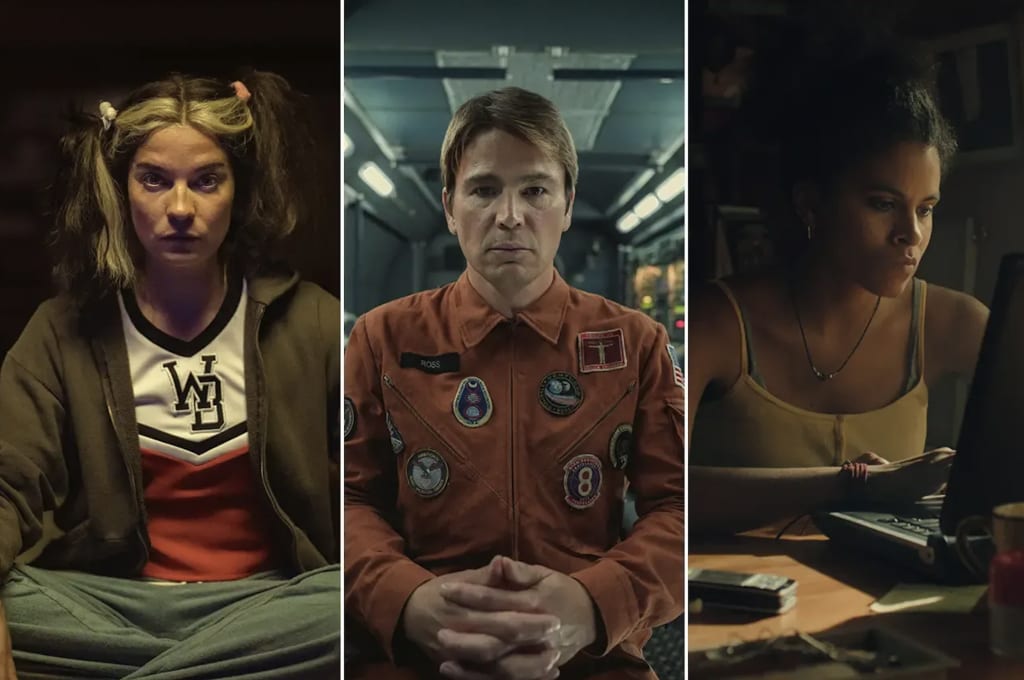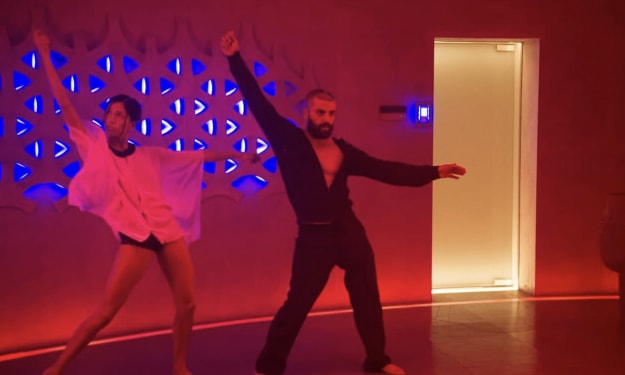The Evolution of Black Mirror: Embracing a Strange Present and Exploring a Familiar Past
From cautionary tales of tomorrow to sobering narratives of today

Black Mirror is a show like no other. With few exceptions, each episode in its first four seasons centers around a futuristic technology, and the depictions are disturbingly well-realized.
But before even the arrival of the fourth season, I’d begun to wonder just how long the formula Black Mirror had established could work before growing stale. How many of these ground-breaking innovations could it depict before inspiration begins running thin? Even the most acclaimed futurists can only muster so much foresight into the confounding futures that still lie ahead. From its first season, though, that’s always seemed to be Black Mirror’s mission: predict and bring to life the eerie technologies of tomorrow.
But as the 2010s continued rapidly onward, our realities grew into something more and more sci-fi. Surely there were times when reality stole ideas directly from Black Mirror’s lap as it attempted to brainstorm the concepts for future episodes. In a few instances, reality has overtly adopted ideas from the dystopian anthology show.
Now in 2023, the VR technospheres and AI uprisings that once seemed lofty appear grounded. Movies like Her and The Terminator depict realities that are almost within reach. It’s made the challenge of producing a show like Black Mirror into something it never was when it was first released. So many of the scary futures that humanity now fears are bases that the show has comprehensively covered.
When Trump was first elected president, there was a slew of headlines that emerged proclaiming that satire had died. After all, how could someone so outrageous ever be satirized? So many of the things that he was filmed saying and doing seemed like the material for comedy skits already. How could satire go on?
Black Mirror found itself in a similar spot prior to the release of this latest season. Where satirists were expected to hyperbolize what was already outrageous, Black Mirror has been expected to depict dystopian futures in an already dystopian present. But satire didn't die when Trump was elected, it only changed with the times. Similarly, Black Mirror hasn’t died, it’s just finding new footing in a rapidly changing world.
When the sound of a band changes with the release of new albums, fans can be quick to cry “sellout!” and yearn for a return to form. But projects should be judged by merit rather than precedent. For many, this latest season of Black Mirror has been labeled as one of its worst. The judgment seems to stem more from its departure from formula than any true lapse in quality.
Each episode is stirring, unnerving, and cinematic. The staple tone of Black Mirror is still alive and well in this new season, but it’s decidedly less futuristic than previous iterations. For many, that change is too much.
In my eyes, the ability to evolve with the times can be a testament to a good TV show. South Park has little in common with the show that originally aired on Comedy Central in the mid-90’s, but that’s not to say it doesn’t routinely offer some of the most keen social satire ever written and aired.
Black Mirror continues to provide its biting perspective on our world, but the main distinction now is that the issues have grown even closer to home. Some episodes take place in the present, and some in the past. But none are rooted in the distant futures many have grown to expect of Black Mirror. In many ways, I think it's one of this season’s greatest strengths.
I’ve always loved Black Mirror, but it’s an intense enough show that it’s always felt best consumed in small doses. The episodes could often be a lot to digest. To binge-watch a season like people did Tiger King would leave most in a state of existential despair.
But this season differed in nature. It still didn’t make for the breezy watching that seems to define so many of Netflix’s offerings, but nor was it so depressing that each episode demanded a sober processing period. With the exception of Beyond the Sea, the content was never so dark that I wasn’t immediately willing to begin the next episode.
Joan is Awful felt like an inventive crossover between The Truman Show and The Twilight Zone. Loch Henry explored a more suspenseful direction and the episode features a twist so unexpected it would leave even M. Night Shymalan impressed. Beyond the Sea managed to feel like one of Black Mirror’s most true-to-form episodes of the season in spite of being set in the not-so-recent past. It’s also been lauded by many as Aaron Paul’s best performance as an actor yet.
Mazey Day is an episode that hasn’t been as well-received. It likely stands as Black Mirror’s greatest formula break to date, feeling much more like a by-the-books horror than anything the show had attempted up to this point. On its own merit, I’d actually say that it’s spectacular. When expecting the twists and punches that have defined Black Mirror up to this point, though, it underwhelms a bit.
Demon 79 is one of my favorite episodes in the series, and it takes that title without a single new technology being introduced. It takes place in the 70’s, and its energy reminds me of Jordan Peele’s criminally under-appreciated revamping of The Twilight Zone.
As a whole, it’s clear that Black Mirror is a different show than it used to be. Whether that’s a good or bad thing is largely a matter of personal opinion. This season may feel foreign to some, but to others, it’s a shift that it was necessary for the series to take.
Black Mirror’s canvas has broadened, and its lens has refocused, but its core remains poignantly intact. Its latest season is unsettling, thought-provoking, and powerfully cinematic, and still carries with it the indelible signature of the Black Mirror its fans have come to love. The shifted tone allows the series to explore new depths. It strikes different — but equally resonant — chords of fear, curiosity, and introspection. It might not be what we expected, but perhaps it’s precisely what we needed — a mirror held up to our world, reflecting not a distant future, but a hauntingly familiar past and present.
About the Creator
Ben Ulansey
Ben is a word enthusiast who writes about everything from politics, religion, film, AI and videogames to dreams, drones, drugs, dogs, memoirs, and terrorizing Floridians with dinosaur costumes.






Comments
There are no comments for this story
Be the first to respond and start the conversation.